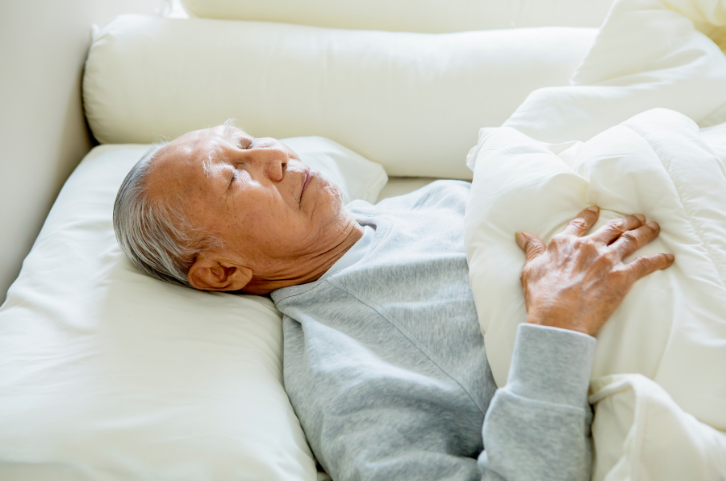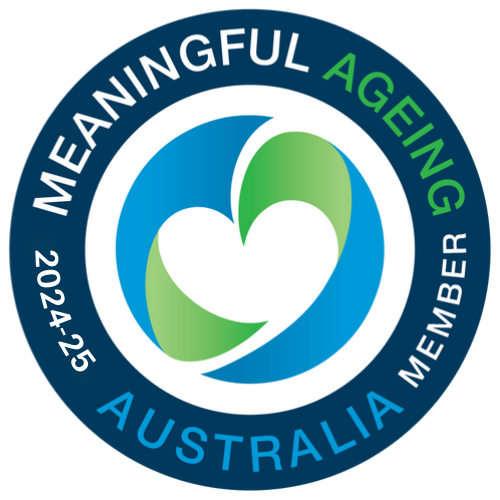It is normal to experience sleep troubles as you age, but severe issues with daytime sleepiness, inability to fall asleep, disturbed sleep cycles, and other bothersome symptoms are abnormal no matter your age. A good night’s rest is just as important for older adults as it is for the younger individuals. Sleep helps us to improve cognitive function, fight illness and disease, repair cell damage, and ward off depression and anxiety.
Read on to understand some of the typical causes of sleep disturbances in older adults, and discover what you can do to better manage your own sleep and get a better night’s sleep.

Understand Common Sleep Changes
Older adults may have sleep problems that are caused by natural decreases in hormones that occur as we age. Because of these changes, it’s common for those who could previously sleep like a rock to become a relatively light sleeper. Those who were once generally hyper-alert and experienced trouble sleeping may even find that they feel compelled to nap during the day or that they become more fatigued earlier in the evening.
Sleep disorders, however, are not a typical part of getting older. If you have trouble with sleeping even when you feel tired, wake up frequently during the night, rely on sleep aids in order to get a full night’s rest, or experience the symptoms of sleep deprivation, such as irritability, daytime tiredness, difficulty staying awake during the day, it may be time to consider a seeking help from you GP.
Identify Common Causes
Sleep problems arise from a variety of causes, and sometimes multiple factors are at play. Understand some of the underlying reasons for your sleep disruptions in order to determine the best course of treatment.
Diet
Beverages that contain caffeine can certainly keep you up at night, but even alcohol, which is considered a depressant, can disrupt your ability to sleep soundly. Some foods can cause blood sugar spikes, too, especially when consumed close to bedtime.
Exercise
A lack of exercise is a significant risk factor for sleep problems in elderly adults. The more sedentary you are, the harder it may be to fall asleep when it’s time to sleep at night.
Environment
If your bedroom is not a calm, peaceful place, it may be one reason for your lack of sleep. Your brain will find it harder to snooze when surrounded by distracting lights, sounds, textures, smells, or other sensory inputs.
Stress
Perhaps one of the most significant factors when an older adult has trouble sleeping is the presence of stress and anxiety. When your body is in a state of stress, it’s alert and unable to relax and wind down.
Medications
The side effects of some medications include sleeplessness, fatigue, or insomnia. Often, a combination of multiple medications can worsen these effects.
Develop a Better Routine
Often, the secrets of how to manage your sleeping problems are found in simple, easy adjustments.
Set a Schedule
Your body’s natural sleep-wake cycle benefits from consistency. Set a bedtime for yourself and try to wake up at the same time every morning.
Create a Regimen
A solid bedtime routine is frequently what helps with sleeping problems, especially persistent ones. Adopt a few soothing bedtime rituals such as journaling, progressive muscle relaxation, bathing, deep breathing, or light stretching.
Eliminate Distractions
The blue light emitted from screens can interfere with your body’s ability to get restful sleep, as can loud or distracting noises. Cut off device usage before bedtime and block out any distracting noises.
Create Ideal Conditions
Make sure your bedroom is calm, quiet, dark, and set at an ideal temperature for sleep.
Seek Medical Assistance
Doctors are familiar with common sleep issues, and sometimes at-home methods are not enough to address the underlying causes of sleep disorders. If you consistently have trouble falling or staying asleep, it may be time to speak with your doctor about alternative treatment options for your sleep troubles. Keep a log of your sleep habits, your diet, your medications, and take them to your next appointment when you discuss your questions, such as “what are the most common causes of sleep problems” and “how can I get better sleep at night?”
Your doctor may suggest alternative options that you can do on your own at home, or you may be prescribed medication that can help you to fall or stay asleep at night if your sleep troubles are persistent.








